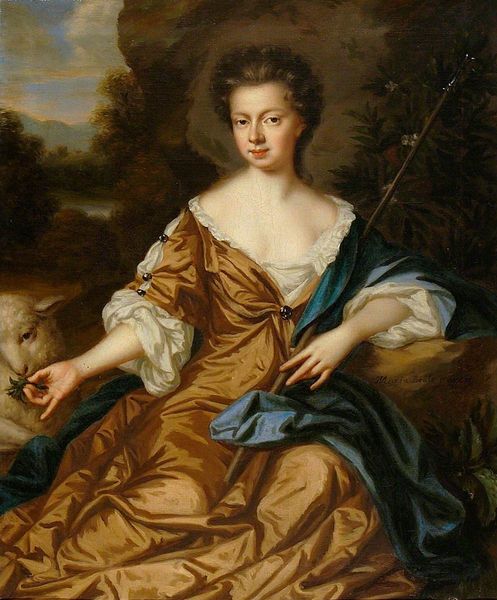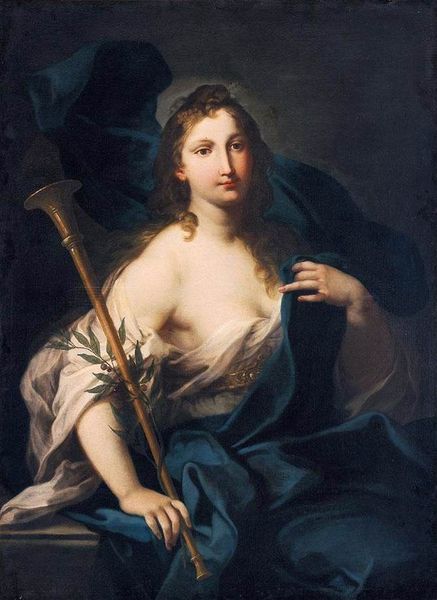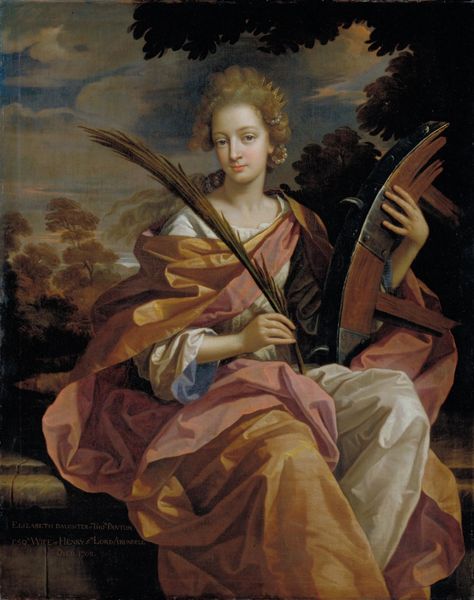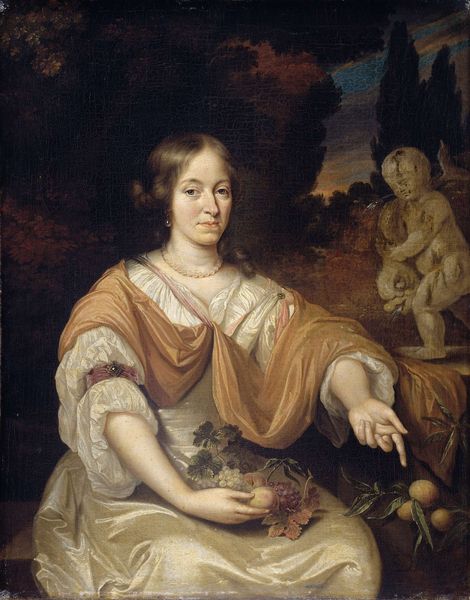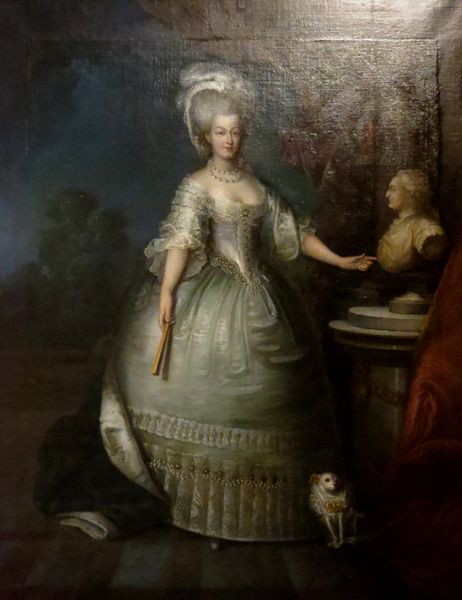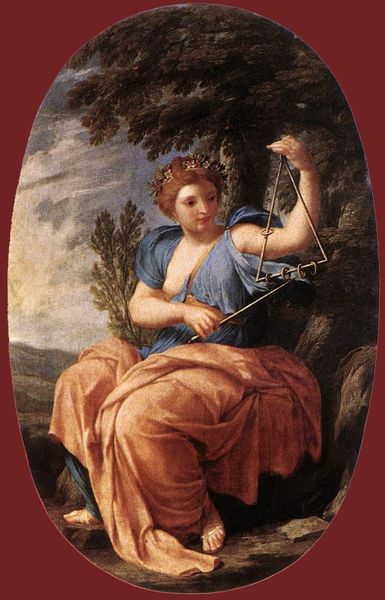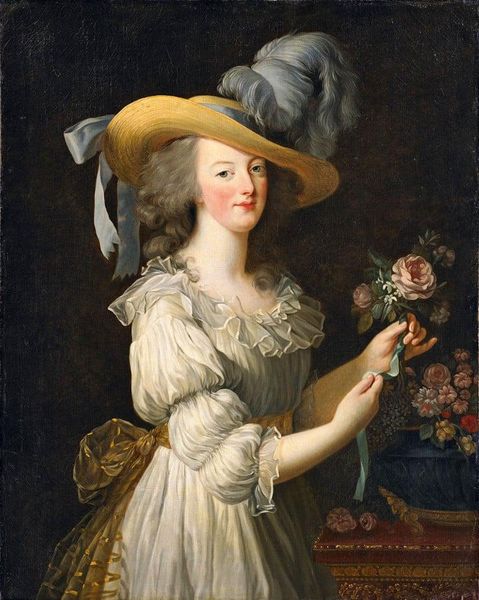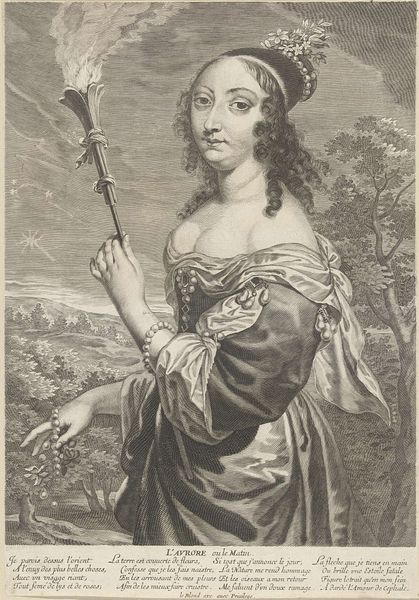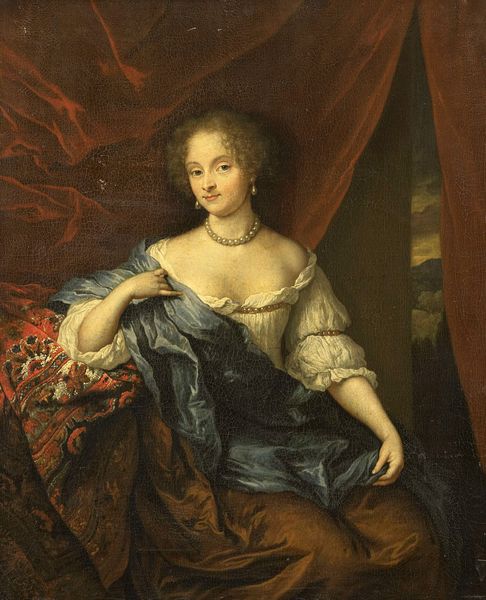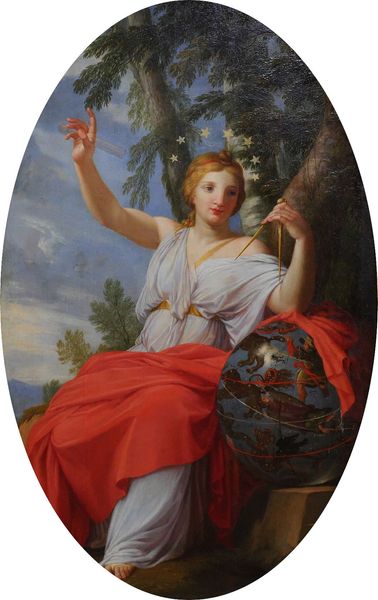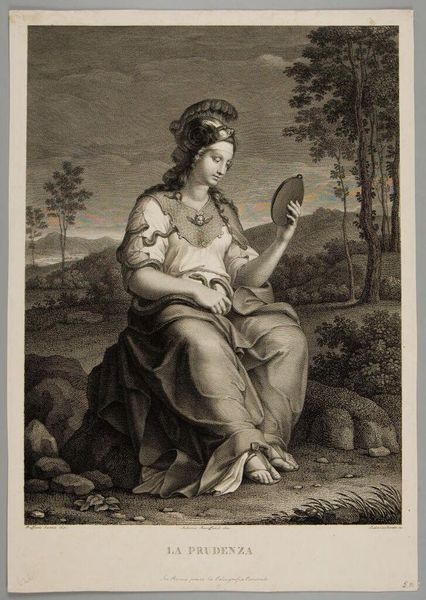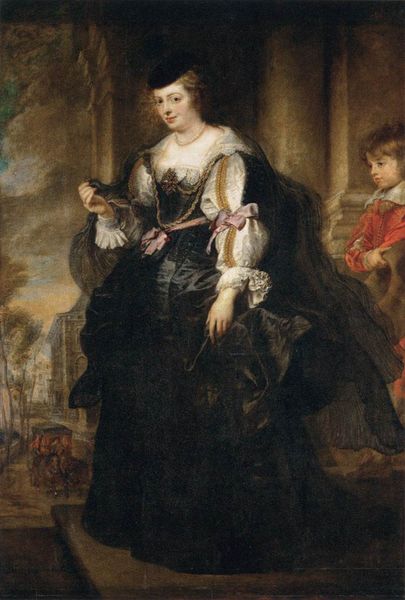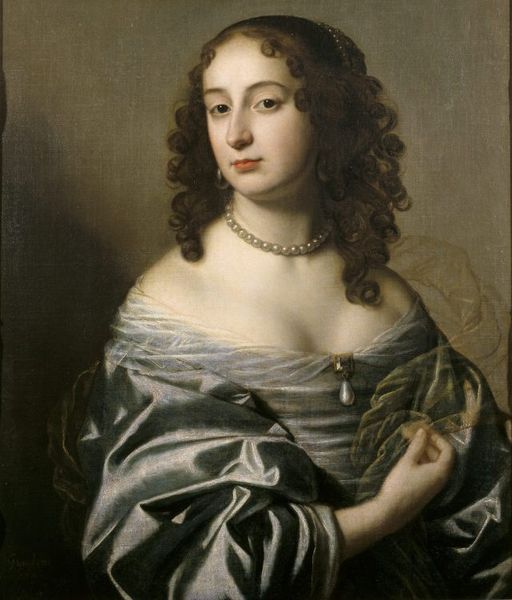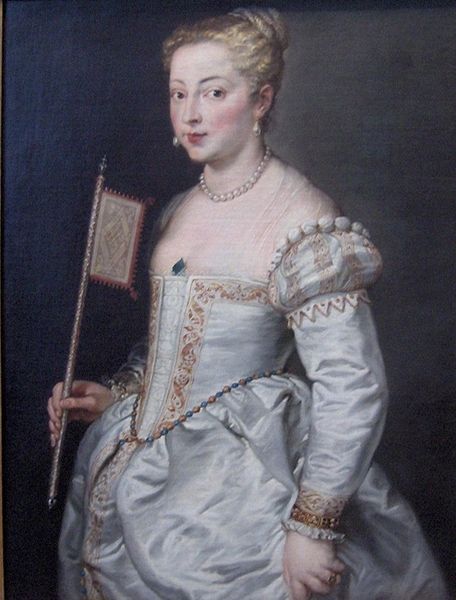
painting, oil-paint
#
portrait
#
baroque
#
painting
#
oil-paint
#
landscape
#
oil painting
#
history-painting
#
lady
#
portrait art
#
fine art portrait
Copyright: Public domain
Editor: Here we have Claude Déruet's 1640 oil on canvas, "Portrait présumé de Julie d'Angennes en costume d'Astrée". It strikes me as quite theatrical, with the pastoral setting contrasting the sitter's opulent dress. How do you interpret the symbolism here? Curator: The layering of identities is compelling. Julie d'Angennes is depicted as Astrée, the shepherdess from d'Urfé's novel. But who was Astrée? A figure of chaste love and constancy. This choice reveals much about how Julie, and her family, wished to be seen. What details stand out to you? Editor: I notice the shepherd's crook and the sheep in the background, but also the very fine lace and jewels. The red book also seems out of place in the pastoral setting. Curator: The book speaks to Julie's intellect and status. The crook and sheep, of course, are the symbols associated with the role she’s playing. This contrast reflects a cultural memory steeped in classical and pastoral ideals being adapted to express 17th-century aristocratic identity. Editor: So, it's not just a portrait, but a carefully constructed image designed to convey very specific ideas about Julie's character and social standing? Curator: Precisely. Consider how frequently we, even today, construct an image through which we hope others perceive us. Does knowing all this change how you see the artwork? Editor: Definitely. I see it as much more calculated and meaningful now than just a pretty picture of a lady. It’s a story being told through symbols. Curator: It’s amazing how images compress so much cultural context into seemingly simple forms. We can spend a lifetime decoding them.
Comments
No comments
Be the first to comment and join the conversation on the ultimate creative platform.
